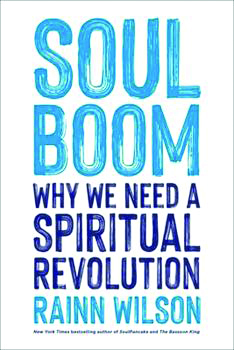Dan Crohn’s comedy craft
On his 1977 live album Let’s Get Small, Steve Martin riffs about the wonders of the world, and ends by quipping, “the most amazing thing to me is I get paid for doing this.” It’s a thought that echoes during a conversation with Dan Crohn. One reason is he credits Martin for inspiring him to become a comic, but the other is that to Crohn standup isn’t just a job. It’s a way to hang out with like-minded friends and do what he loves.
That said, Crohn is a workaholic. If he’s not on stage, he’s home in Somerville writing jokes. During a recent phone interview, it’s Tuesday night and he’s booked to do 10 minutes at Boston’s Bell in Hand. Lately he’s spent a lot of time testing material at Modern Pastry, an 80-year-old North End Italian bakery. “I always feel like if I’m not doing new stuff, what’s the point?” he said. “My jokes get old, and I get tired of them.”
Crohn did his first set in 2004 — he still has the tape. Ten years later he quit a job teaching fourth-graders to go full-time. Now he regularly headlines throughout New England and often beyond, at places like Gotham Comedy Club in New York City. In August he’ll do two nights at Helium in St. Louis, and he’s performing on a Caribbean cruise ship in late December.
As a child Crohn was a comedy nerd, encouraged by his parents. Shows like In Living Color and SNL were appointment television. His father owned a record store that provided albums and VHS tapes; he remembers hearing Henny Youngman on the family turntable at a tender age.
“My parents would go in their room and listen to Redd Foxx with the door closed.” Crohn recalled. Though less adult, his own comedy fare was captivating in its own way. “I was listening to standup very early, and got obsessed with it almost immediately.”
A year or two after turning pro, he made his own album, It’s Enough Already. In May he recorded a second, to be released later this year on Virtual Comedy Network, a label that in 2019 included him on Best of Boston Standup, Vol. 1. His clip, “I Think About Death a Lot,” discussed true crime shows that keep him paranoid and always noting the time, lest he get called as a witness. My whole life “is preparing for police questioning that’s never gonna happen,” Crohn said.
He’s had the opportunity to work with many great comics and compare notes with them, like his favorite comic, Dave Attel, who he shared the stage with at Boston’s Wilbur Theatre. “The highlight of my career,” he said. “We talked forever about it, which was really nice.”
Crohn spent a couple of years supporting Sebastian Maniscalco, and he has also opened for Nikki Glaser, John Oliver, and Jon Lovitz. In 2013 he was a panel guest on a Boston-centric episode of Marc Maron’s WTF Podcast. Another great memory is a long conversation with Steven Wright at the prestigious Nantucket Comedy Festival.
“Writing is my favorite part of this,” he said. “My second is getting to work with incredible acts.”
For Crohn, the discipline of standup is part of its appeal. “A great comic, Nick Di Paolo, once said, ‘Oh, you’re funny off the cuff, well, that’s why you become a comedian — now go write some jokes.’ I believe that it’s a lot harder to write jokes and entertain people. When you’re just making stuff up, that’s improv. If you wanna do improv, go for it.”
To that end, he didn’t share the antipathy many comics had toward online shows during the pandemic. “I love Zoom,” he said. “I approached it as a way to workshop jokes, with cards and my notes out. I refused to let that muscle atrophy.”
On the other hand, crowd work — the comic’s euphemism for bantering with an audience — holds little appeal for Crohn.
“I hate it! I like writing,” he said. “The craft of standup, the editing and the refinement of material, is what I’m addicted to the most. I love how jokes work, and I love how my jokes work specifically. I love the creative process. It’s what drew me to it originally, and it’s what continues to sustain me in a business that shouldn’t be called a business.”
All the while, the words of his wild and crazy comedy idol ring in his ears. “I continue to be enamored about it to this day,” Crohn said. “I still can’t believe that people give me money.”
Dan Crohn
When: Saturday, June 10, 8 p.m.
Where: Headliners Comedy Club, 700 Elm St., Manchester
Tickets: $20 at headlinersnh.com
Also supporting Mike Koutrobis on Friday, June 9, 8 p.m. at Tupelo Music Hall, 10 A St., Derry ($22 at tupelohall.com)
Featured photo: Dan Crohn. Courtesy photo.






